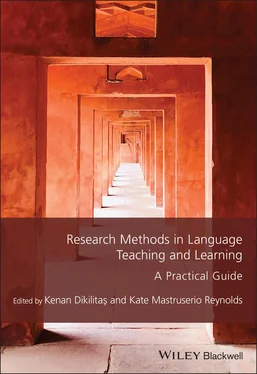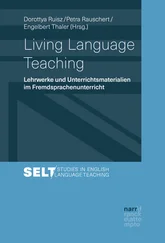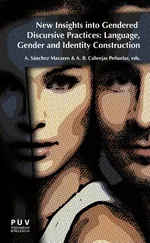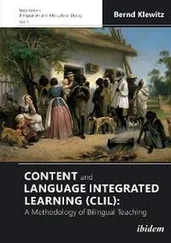Research Methods in Language Teaching and Learning
Здесь есть возможность читать онлайн «Research Methods in Language Teaching and Learning» — ознакомительный отрывок электронной книги совершенно бесплатно, а после прочтения отрывка купить полную версию. В некоторых случаях можно слушать аудио, скачать через торрент в формате fb2 и присутствует краткое содержание. Жанр: unrecognised, на английском языке. Описание произведения, (предисловие) а так же отзывы посетителей доступны на портале библиотеки ЛибКат.
- Название:Research Methods in Language Teaching and Learning
- Автор:
- Жанр:
- Год:неизвестен
- ISBN:нет данных
- Рейтинг книги:5 / 5. Голосов: 1
-
Избранное:Добавить в избранное
- Отзывы:
-
Ваша оценка:
- 100
- 1
- 2
- 3
- 4
- 5
Research Methods in Language Teaching and Learning: краткое содержание, описание и аннотация
Предлагаем к чтению аннотацию, описание, краткое содержание или предисловие (зависит от того, что написал сам автор книги «Research Methods in Language Teaching and Learning»). Если вы не нашли необходимую информацию о книге — напишите в комментариях, мы постараемся отыскать её.
Research Methods in Language Teaching and Learning
Research Methods in Language Teaching and Learning
Research Methods in Language Teaching and Learning — читать онлайн ознакомительный отрывок
Ниже представлен текст книги, разбитый по страницам. Система сохранения места последней прочитанной страницы, позволяет с удобством читать онлайн бесплатно книгу «Research Methods in Language Teaching and Learning», без необходимости каждый раз заново искать на чём Вы остановились. Поставьте закладку, и сможете в любой момент перейти на страницу, на которой закончили чтение.
Интервал:
Закладка:
Conclusions
This chapter addressed a number of significant issues that need to be taken into account when designing a study that attempts to improve classroom practice. The research described shows that it was possible to implement student negotiation in an EFL speaking class. Following an action research methodology enabled several interventions and collecting systematic data on the effectiveness of these interventions. These led to improvement in the research interventions, and hence, classroom practice. Investigating an under-researched area (i.e., student-negotiated EFL speaking class) necessitated building theory from the data. Therefore, grounded theory was used to design the research procedure, which led the researcher to a theoretical understanding of the influence of student-negotiation on a variety of factors that are likely to improve learners’ EFL speaking competence.
Although the findings revealed several positive outcomes related to the role of student negotiation in EFL speaking classes, the study did not test whether it contributed to students’ speaking competence. A focus on this issue would make the research more productive in terms of exploring the benefits of student-negotiated speaking classes. This requires collecting data for a longer period of time, because it is difficult to improve learners’ speaking competence in a limited period. It would also be useful to follow experimental methodology to test whether there was a causal relationship between student-negotiation and EFL speaking competence.
This study served one of the significant objectives of educational research, which is improving classroom practice. I believe that educational research studies that are unable to generate practical implications for improving classroom practice are of little value. To avoid this, educational research should be concerned with designing studies that are likely to offer some useful ways for improving education. In doing so, it is important to consider instructional problems that students and teachers encounter in their learning and teaching processes. This could make it possible to address major issues in education in any particular context.
Designing qualitative research requires the researcher to make judgements based on their subjective perspective which might influence the trustworthiness of the research. To improve trustworthiness, rather than using only qualitative content analysis, which could lead to just a descriptive understanding of the situation, it may be more useful to follow systematic procedures such as those offered by grounded theory. Grounded theory proposes essential steps that should be followed to generate a theory based on the data. In my dissertation, grounded theory enabled me to follow a systematic research procedure and generate theoretical hypothesis, which led to identifying implications for teaching and learning EFL speaking.
Questions for the Reader
1 What are distinctive features of grounded theory?
2 What are some important benefits of using grounded theory in educational research?
3 What is triangulation and why is it important?
Acknowledgments
I would like to thank Dr. Jill Cadorath and Dr. Nigel Skinner for reviewing and proofreading an earlier version of the chapter.
Suggested Readings
1 Birks, M., & Mills, J. (2015). Grounded theory: A practical guide. Sage Publications.
2 Charmaz, K. (1996). The search for meaning – Grounded theory. In J. A. Smith, R. Harré, & L. Van Langenhove (Eds.), Rethinking methods in psychology (pp. 27–49). Sage Publications.
References
1 Ali, A., Tariq, R. H., & Topping, K. J. (2009). Students’ perception of university teaching behaviors. Teaching in Higher Education, 14(6): 631–647. https://doi.org/10.1080/13562510903315159
2 Aloreibi, A., & Carey, M. D. (2017). English language teaching in Libya after Gaddafi. In R. Kirkpatrick (Ed.), English language education policy in the Middle East and North Africa (pp. 93–114). Springer.
3 Bailey, K. D. (1994). Methods of social research (4th ed.). The Free Press.
4 Bassey, M. (1998). Action research for improving educational practice. In R. Halsall (Ed.), Teacher research and school improvement: Opening doors from the inside (pp. 93–108). Open University Press.
5 Birks, M., & Mills, J. (2015). Grounded theory: A practical guide. Sage.
6 Brown, A., & Dowling, P. (1998). Doing research/Reading research. Falmer Press.
7 Burns, A. (1999). Collaborative action research for English language teachers. Cambridge University Press.
8 Burns, A. (2010a). Doing action research in English language teaching: A guide for practitioners. Routledge.
9 Burns, A. (2010b). Action research. In B. Paltridge & A. Phakiti (Eds.), Continuum companion to research methods in applied linguistics (pp. 80–97). Continuum.
10 Charmaz, K. (2006). Constructing grounded theory: A practical guide through qualitative analysis. Sage.
11 Clarke, D. F. (1991). The negotiated syllabus: What is it and how is it likely to work? Applied Linguistics, 12(1), 13–28. https://doi.org/10.1093/applin/12.1.13
12 Cohen, L., Manion, L., & Morrison, K. (2007). Research methods in education (6th ed.) Routledge.
13 Cook, D. L. (1962). The Hawthorne effect in educational research. The Phi Delta Kappan, 44(3), 116–122.
14 Crotty, M. (1998). The foundations of social research. Sage.
15 Denzin, N. K. (1970). The research act in sociology. London: Butterworths.
16 Doran, C., & Cameron, R. J. (1995). Learning about learning: Metacognitive approaches in the classroom. Educational Psychology in Practice, 11(2), 15–23. https://doi.org/10.1080/0266736950110203
17 Dörnyei, Z. (2002). Questionnaires in second language research. Lawrence Erlbaum Associates.
18 Ebbutt, D. (1985). Educational action research: Some general concerns and specific quibbles. In R. Burgess (Ed.), Issues in educational research (pp. 152–174). Falmer Press.
19 Elliott, J. (1991). Action research for educational change. Open University Press.
20 Flick, U. (2006). An introduction to qualitative research. Sage.
21 Frost, P. (2002). Principles of the action research cycle. In R. Ritchie, A. Pollard, P. Frost, & T. Eaude (Eds.), Action research: A guide for teachers burning issues in primary education (pp. 24–32). National Primary Trust.
22 Geertz, C. (1973). The interpretation of cultures: Selected essays. Basic Books.
23 Glaser, B. G. (1978). Theoretical sensitivity. The Sociology Press.
24 Glaser, B. G. (2007). Naturalist inquiry and grounded theory. Historical Social Research/Historische Sozialforschung. Supplement, 19, 114–132. https://www.jstor.org/stable/40981073
25 Glaser, B. G., & Holton, J. (2004). Remodeling grounded theory. In Forum Qualitative Sozialforschung/Forum: Qualitative Social Research, 5(2). https://doi.org/10.17169/fqs-5.2.607
26 Gorsuch, G. J. (2000). EFL educational policies and educational cultures: Influences on teachers’ approval of communicative activities. TESOL Quarterly, 34(4), 675–710. https://doi.org/10.2307/3587781
27 Grainger, T. (2000). The current status of oracy: A cause of (dis)satisfaction? In J. Davison & J. Moss (Eds.), Issues in English teaching (pp. 57–72). Routledge.
28 Grix, J. (2004). The foundations of research. Palgrave Macmillan.
29 Gürsoy, E., Korkmaz, S. C., & Damar, E. A. (2013). Foreign language teaching within 4+4+4 education system in Turkey: Language teachers’ voice. Eurasion Journal of Educational Research, 53, 59–74. http://ejer.com.tr/public/assets/catalogs/0527491001578658390.pdf
30 Hall, H. M., & Austin, T. (2004). Content-based second language teaching and learning: An interactive approach. Pearson Education.
Читать дальшеИнтервал:
Закладка:
Похожие книги на «Research Methods in Language Teaching and Learning»
Представляем Вашему вниманию похожие книги на «Research Methods in Language Teaching and Learning» списком для выбора. Мы отобрали схожую по названию и смыслу литературу в надежде предоставить читателям больше вариантов отыскать новые, интересные, ещё непрочитанные произведения.
Обсуждение, отзывы о книге «Research Methods in Language Teaching and Learning» и просто собственные мнения читателей. Оставьте ваши комментарии, напишите, что Вы думаете о произведении, его смысле или главных героях. Укажите что конкретно понравилось, а что нет, и почему Вы так считаете.












